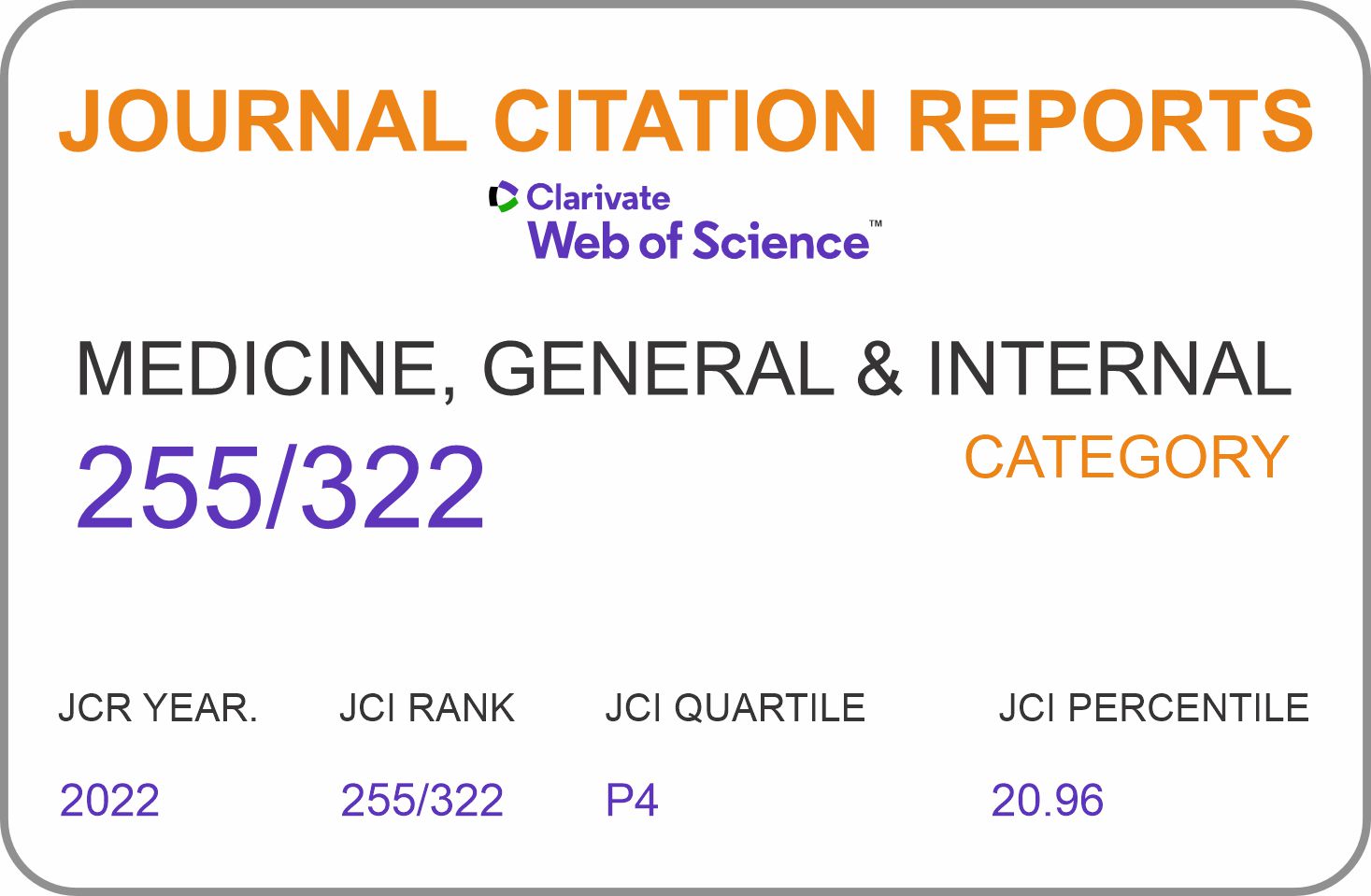Malaria outbreak in relation to a cluster of imported cases in a border area, Peru
DOI:
https://doi.org/10.35434/rcmhnaaa.2022.153.1417Keywords:
Epidemiologic Methods, Epidemiological Monitoring, Transients and Migrants, Malaria, Vivax, prevention & control, PeruAbstract
Background: Malaria is transmitted by the bite of mosquitoes of the Anopheles genus. The Tumbes region located on the northern border of Peru, despite the permanent presence of the vector, was free of malaria, presenting only sporadic imported cases. Material and Methods: A case series study of an outbreak of malaria caused by P. vivax associated with a conglomerate of imported cases was carried out in the context of massive Venezuelan migration to Peru. Results: The control activities implemented through the modified epidemiological fence methodology to control the reintroduction of the disease are described; transmission of the outbreak related to Venezuelan migrants in transit was detected. Conclusions: the reintroduction of malaria in the Tumbes region was related to cases imported by Venezuelan migration. The modified epidemiological fences made it possible to improve the collection of cases in situ.
Downloads
Metrics
References
OMS. Paludismo [Internet]. Organización mundial de la Salud; 2022 [citado 14 de marzo de 2022]. Disponible en: https://bit.ly/2Smhlql.
Rossati A, Bargiacchi O, Kroumova V, Zaramella M, Caputo A, Garavelli PL. Climate, environment and transmission of malaria. Infez Med [Internet]. 2016 [Cited 2022 Feb 13];24(2):93-104. Available from: https://bit.ly/3Uwle8J
Howes RE, Battle KE, Mendis KN, Smith DL, Cibulskis RE, Baird JK, et al. Global Epidemiology of Plasmodium vivax. Am J Trop Med Hyg. 2016;95(6 Suppl):15-34. doi: 10.4269/ajtmh.16-0141.
Dayananda KK, Achur RN, Gowda DC. Epidemiology, drug resistance, and pathophysiology of Plasmodium vivax malaria. J Vector Borne Dis. 2018;55(1):1-8. Doi: 10.4103/0972-9062.234620.
Meibalan E, Marti M. Biology of Malaria Transmission. Cold Spring Harb Perspect Med. 2017; 7(3): :a025452. Doi: 10.1101/cshperspect.a025452.
Alimi TO, Fuller DO, Herrera SV, Arevalo-Herrera M, Quinones ML, Stoler JB, et al. A multi-criteria decision analysis approach to assessing malaria risk in northern South America. BMC Public Health. 2016;16(1):221. Doi:10.1186/s12889-016-2902-7
Calderón-Rodríguez KV. Situación epidemiológica de malaria en la micro red Iquitos Sur, Loreto 2008-2017. Rev Cuerpo Méd Hosp Nac Almanzor Aguinaga Asenjo. 2018;11(3):185-9. Doi: 10.35434/rcmhnaaa.2018.113.413.
Ñique-Carbajal C, Moreno-Echeandia G, Gamboa D, Contreras J. Características epidemiológicas de pacientes asintomáticos infectados con Plasmodium sp. del Distrito de Chóchope, Departamento de Lambayeque, 2012. Rev Cuerpo Méd Hosp Nac Almanzor Aguinaga Asenjo. 2015;8(2):90-3. Doi: 10.35434/rcmhnaaa.2015.82.204.
Ministerio de Salud. ASIS- Dirección Regional de Salud Tumbes [Internet]. Dirección Regional de Salud Tumbes ; 2020 [citado 5 de febrero de 2020]. Disponible en: https://bit.ly/3DZ7A6X
Solís RL, González RV, Solís ME. Susceptibilidad de Anopheles albimanus a los insecticidas en cuatro localidades de Tumbes. Memorias del II Congreso Binacional de Investigación, Ciencia y Tecnología de las Universidades [Internet]. 2020 [citado 14 de marzo de 2022]. Disponible en: https://bit.ly/3UwDu1I.
Krisher LK, Krisher J, Ambuludi M, Arichabala A, Beltrán-Ayala E, Navarrete P, et al. Successful malaria elimination in the Ecuador–Peru border region: epidemiology and lessons learned. Malar J. 2016;15(1):573. Doi: 10.1186/s12936-016-1630-x.
Recht J, Siqueira AM, Monteiro WM, Herrera SM, Herrera S, Lacerda MVG. Malaria in Brazil, Colombia, Peru and Venezuela: current challenges in malaria control and elimination. Malar J. 2017;16(1):273. doi: 10.1186/s12936-017-1925-6.
SALA SITUACIONAL VIRTUAL REGION TUMBES [Internet]. Tableau Software. [citado 5 de febrero de 2020]. Disponible en: https://tabsoft.co/3DO9QzH
MINSA. NORMA TÉCNICA DE SALUD PARA LA ATENCION DE LA MALARIA Y MALARIA GRAVE EN EL PERU [Internet]. Lima; Dirección General de Salud de las Personas; 2015 [citado 14 de marzo de 2022]. Disponible en: https://bit.ly/3A7xTa3.
Jaramillo-Ochoa R, Sippy R, Farrell DF, Cueva-Aponte C, Beltrán-Ayala E, Gonzaga JL, et al. Effects of Political Instability in Venezuela on Malaria Resurgence at Ecuador–Peru Border, 2018. Emerg Infect Dis. 2019;25(4):834-6. doi: 10.3201/eid2504.181355.
Mendoza W, Miranda JJ. La inmigración venezolana en el Perú: desafíos y oportunidades desde la perspectiva de la salud. Rev Peru Med Exp Salud Pública. 2019;36(3):497. Doi: 10.17843/rpmesp.2019.363.4729
Blouin C. Complejidades y contradicciones de la política migratoria hacia la migración venezolana en el Perú. Colomb Int. 2021;(106):141-64. DOI: 10.7440/colombiaint106.2021.06
WHO-Malaria. Profile Venezuela [Internet]. [citado 14 de marzo de 2022]. Disponible en: https://www.who.int/malaria/publications/country-profiles/profile_ven_en.pdf?ua=1
WHO-Malaria. Profile Ecuador [Internet]. [citado 14 de marzo de 2022]. Disponible en: https://www.who.int/malaria/publications/country-profiles/profile_ecu_en.pdf?ua=1
WHO-Malaria. Profile Colombia [Internet]. [citado 14 de marzo de 2022]. Disponible en: https://www.who.int/malaria/publications/country-profiles/profile_col_en.pdf?ua=1
Rodríguez-Morales AJ, Suárez JA, Risquez A, Villamil-Gómez WE, Paniz-Mondolfi A. Consequences of Venezuela’s massive migration crisis on imported malaria in Colombia, 2016–2018. Travel Med Infect Dis. 2019;28:98-9. doi: 10.1016/j.tmaid.2019.02.004.
Filho JLS. João Luiz Silva-Filho University of Campinas (UNICAMP) Laboratory of Tropical Diseases - Prof. Luiz Jacintho da Silva E-mail: joaoufrj@gmail.com. :1.
Pérez NR, Al E. Evaluación de la Estrategia Multisectorial Integrada para la Prevención y Control del Problema de Salud Pública VIH/sida en Cuba, 2004-2013. An Acad Cienc Cuba [Internet]. 2016 [citado 14 de marzo de 2022];5(3). Disponible en: https://bit.ly/3fY8ybH
Rodríguez I, De Abreu N, Carrasquel A, Bolívar J, González M, Scorza JV, et al. Infecciones maláricas en individuos asintomáticos en la población indígena Jivi, Amazonas, Venezuela. Bol Malariol Salud Ambient [Internet]. 2010 [citado 14 de marzo de 2022];50(2):197-218. Disponible en: https://bit.ly/3UTbm93
OIM. Informe: situación de los migrantes extranjeros en el perú y su acceso a servicios sociales, servicios de salud y de educación [Internet]. 2015 [citado 14 de marzo de 2022]. Disponible en: https://bit.ly/3g0wJq2
Downloads
Published
How to Cite
Issue
Section
Categories
License
Copyright (c) 2022 María Edith Solis-Castro, Rommell V. Gonzalez Seminario

This work is licensed under a Creative Commons Attribution 4.0 International License.















